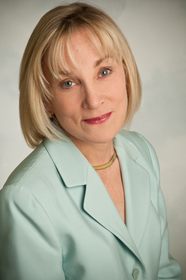Contact Information: CONTACT: Chris Wloszczyna Director of Public Relations CFP Board P: 202-379-2252 E: cwloszczyna@CFPBoard.org Stacy Dimakakos Grayling P: 646-284-9417 E: stacy.dimakakos@us.grayling.com
Do Not Sacrifice Your Financial Wellbeing for Your Children
The New Financial Realities: Personal Statement by Eleanor Blayney, CFP(R) Consumer Advocate for the Certified Financial Planner Board of Standards (CFP Board):
WASHINGTON, DC--(Marketwire - December 9, 2009) - The financial events of the past year have
taught us that we can no longer afford to think about our personal finances
as we did in the bubbly pre-recession days. Today, there are new financial
realities; we must re-examine some basic assumptions and consider some new
approaches. Over the course of this series, we are looking at nine
important financial strategies. This week: It's Okay to Be Selfish; Your
Financial Wellbeing Comes Before your Children's.
The average cost of raising a child through the age of 17 in the U.S. has
been estimated at well over $200,000. This estimate does not include the
cost of a college education which can range from $20,000 to $60,000 a year,
depending on whether the child attends a public university or a private
college. In today's financial environment money has become a scarce
resource, forcing Americans to make hard budgeting decisions. The
dilemma is particularly acute for parents, whose first priority is often
their children. When it comes to a choice of funding education or funding
their own retirements, many parents put their children's needs first.
Parents need to rethink this choice. The reality is that there are
multiple options for financing a child's education, such as loans, grants,
scholarships, and work-study programs. These options simply do not exist
for retirement. Pension plans are becoming a thing of the past, and Social
Security is designed to cover only your most basic requirements.
It's time to get serious and selfish about saving for retirement, putting
it ahead of education savings or other privileges we want for our children.
If this goes against your parental instinct, consider this: if you do not
take care of yourself, it may well fall to your children to do so. Being
selfish is in fact one of the best ways to take care of your kids.
Be straightforward with your children about how much you can afford for
tuition. Get them involved in evaluating some cost-savings options, such
as attending college closer to home or working while studying. Teach your
children the importance of fiscal responsibility by showing them how to
save, invest, and prioritize their expenditures. This will help them in the
future when they have to start planning their own retirements.
As the Consumer Advocate for CFP Board, I offer you the same advice given
during every preflight safety speech: if you are traveling with a child,
put your oxygen mask on before assisting others. Your financial security
comes first. It is never too early, or too late, to plan for the last,
important decades of our lives. There are more than 60,000 CFP®
professionals who can help you build new income, investing, and spending
strategies for surviving and thriving in your retirement. Go to
www.CFP.net and learn how a CFP® professional can help you.
To view the new financial realities series, please visit
http://www.cfp.net/learn/advocate.asp
Eleanor on Twitter: http://twitter.com/EleanorBlayney
Eleanor on FiLife: http://www.filife.com/user/eleanorblayney
Eleanor on LifeTuner: http://www.lifetuner.org/users/eleanorblayney
About CFP Board:
The mission of Certified Financial Planner Board of Standards, Inc. is to
benefit the public by granting the CFP® certification and upholding it as
the recognized standard of excellence for personal financial planning. The
Board of Directors, in furthering CFP Board's mission, acts on behalf of
the public, CFP® certificants and other stakeholders. CFP Board owns the
certification marks CFP®, CERTIFIED FINANCIAL PLANNER™ and federally
registered CFP (with flame design) in the U.S., which it awards to
individuals who successfully complete CFP Board's initial and ongoing
certification requirements. CFP Board currently authorizes more than 60,000
individuals to use these marks in the United States. For more about CFP
Board, visit www.CFP.net.
